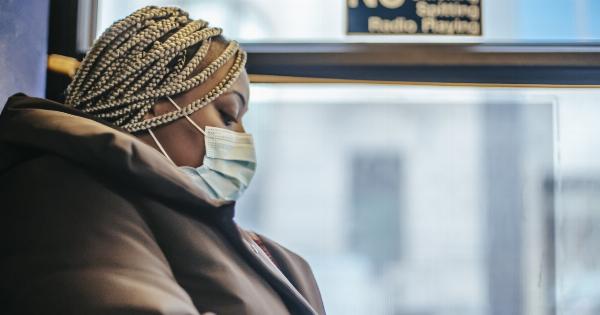Acne is a skin condition that often affects teenagers during puberty due to hormonal changes. However, it is not uncommon for adults to continue experiencing breakouts well into their 20s, 30s, and even beyond.
Adult acne can be frustrating and embarrassing, impacting our self-esteem and confidence. In this article, we will explore the causes of breakouts in adulthood and discuss potential solutions to help you have clearer, healthier skin.
1. Hormonal Imbalances
One of the primary reasons for breakouts in adulthood is hormonal imbalances. Fluctuations in hormone levels can trigger the production of excess sebum, an oily substance that clogs pores and leads to the development of acne.
Hormonal changes can occur due to various factors, including stress, menstrual cycles, pregnancy, and certain medical conditions such as polycystic ovary syndrome (PCOS).
2. Stress
Stress is a significant factor that can worsen acne in adults. When we experience stress, our bodies release cortisol, a stress hormone that can increase the production of sebum.
Additionally, stress can disrupt our sleep patterns, compromise our immune system, and trigger inflammation, all of which can contribute to the development and persistence of acne.
3. Poor Skincare Routine
Another common cause of adult acne is a poor skincare routine. Failing to cleanse your face properly, using harsh or comedogenic (pore-clogging) products, or neglecting to moisturize can all contribute to breakouts.
Additionally, not removing makeup before bed can lead to the accumulation of dirt, oil, and bacteria on the skin, exacerbating acne.
4. Diet and Lifestyle Factors
Our diet and lifestyle choices can also play a significant role in adult acne. Consuming a diet high in refined sugars, processed foods, and dairy products has been linked to increased acne breakouts.
Similarly, smoking, excessive alcohol consumption, and lack of physical activity can negatively impact our skin health and promote the development of acne.
5. Environmental Factors
Various environmental factors can contribute to adult acne as well. Exposure to pollutants, such as air pollution and cigarette smoke, can clog pores and trigger inflammation.
Additionally, using certain cosmetic products that contain comedogenic ingredients or not adequately removing environmental pollutants from the skin can worsen acne.
6. Genetic Predisposition
While the exact role of genetics in acne development is not fully understood, there is evidence to suggest that certain individuals may have a genetic predisposition to acne.
If your parents or close relatives had a history of acne, you may be more prone to experiencing breakouts in adulthood.
7. Solution: Maintain a Consistent Skincare Routine
A crucial step in managing adult acne is establishing a consistent skincare routine. Start by using a gentle cleanser to remove dirt, oil, and bacteria from your face twice a day.
Avoid using harsh soaps or scrubbing vigorously as this can irritate the skin and worsen acne. After cleansing, apply a non-comedogenic moisturizer to keep your skin hydrated without clogging pores.
8. Solution: Use Acne-Fighting Ingredients
When selecting skincare products, look for those containing acne-fighting ingredients such as salicylic acid, benzoyl peroxide, or tea tree oil. These ingredients can help unclog pores, reduce inflammation, and kill acne-causing bacteria.
However, be cautious not to overuse these products as they can cause dryness and irritation.
9. Solution: Manage Stress
Since stress can contribute to adult acne, it is essential to find effective ways to manage stress levels.
Engaging in regular exercise, practicing relaxation techniques like meditation or yoga, and ensuring an adequate amount of sleep can help reduce stress and improve overall skin health.
10. Solution: Make Dietary and Lifestyle Changes
Consider making some dietary and lifestyle changes to support clearer skin. Increase your intake of fruits, vegetables, and foods rich in omega-3 fatty acids, which have anti-inflammatory properties.
Reduce your consumption of sugary and processed foods and limit dairy product intake. Moreover, avoid smoking, limit alcohol consumption, and maintain an active lifestyle to promote healthy skin.
Conclusion
While adult acne can be distressing, there are solutions available to manage and improve the condition.
By understanding the causes behind breakouts in adulthood and implementing the right skincare routine, managing stress, and making dietary and lifestyle changes, you can take significant steps towards achieving clearer and healthier skin. Remember, every individual is unique, so it may take some time to find the most effective combination of solutions for your specific skin needs.































